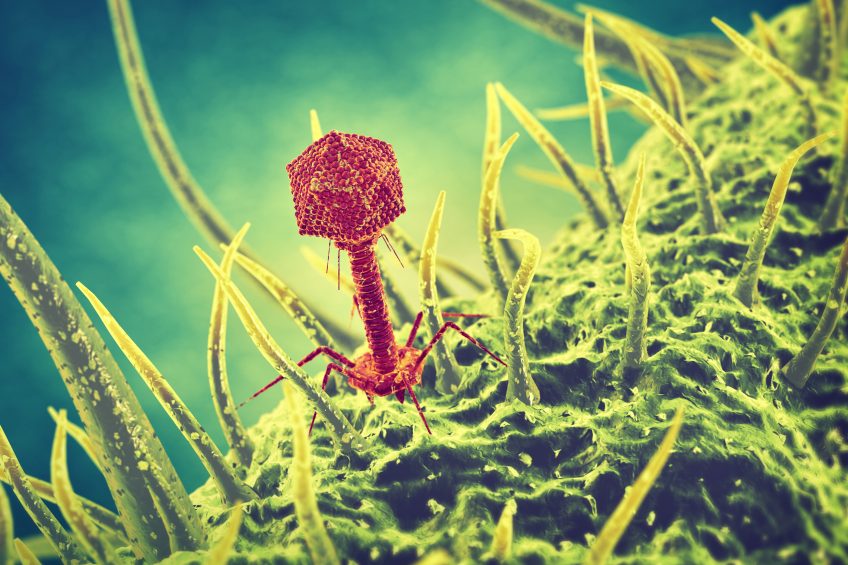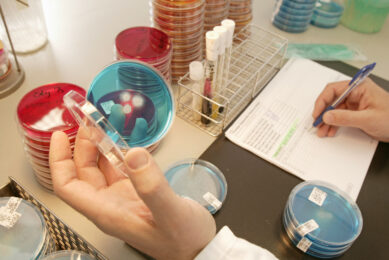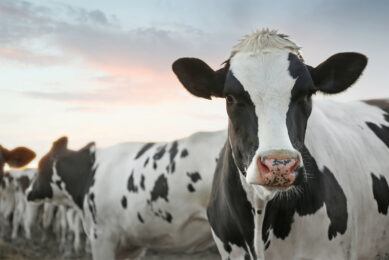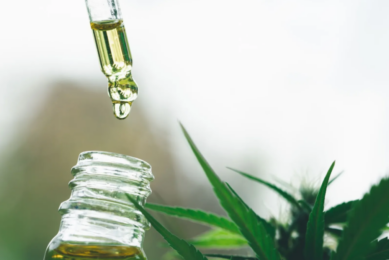Bacteriophages could be alternative for antibiotics in pigs

UK researchers have described organisms able to target harmful bacteria and leave ‘good’ bacteria intact in pigs. This may drive a long term change in how people with drug-resistant infections are treated.
The research, which will be published in a scientific journal later this year, was carried out by Prof Martha Clokie and her team at the University of Leicester, United Kingdom. The team isolated 20 bacteriophages – or bacterial viruses – that target 72 strains of potentially drug-resistant bacteria that can cause gut problems in pigs.
Phages served as powder to pigs
A news report at the university’s website stated that the scientists were able to dry out the phages to form a powder which could be orally administered to the animals via their feed.
These strains were isolated from clinical cases from the field and provided by the Animal and Plant Health Agency (APHA). When used in combination, the bacteriophage cause a 4 log reduction in 2 hours.
More specific than antibiotics
In the news release, it is explained that bacteriophages are much more specific than antibiotics and can be used to treat a whole range of bacterial infections, many of which do not respond to conventional antibiotics.

Find out all there is to know about pig health using Pig Progress’ unique Pig Health Tool
Prof Clokie, working at the university’s Department of Infection, Immunity and Inflammation, has spent the last decade applying an environmental and ecological framework. She attempted to understand the ecological roles or viruses in many bacteria that cause human disease.
Resistant to antibiotics
In the news release she said: “There are many infections that we just can’t treat with antibiotics because they have become resistant to them. So using the phage therapy for specific diseases could change the way we treat infection.”

She added that early results indicated that phage therapy could be ‘completely transformative for human health’ and that if trials in pigs work, the new therapy could be extended to treat people.
Positive reactions from agricultural organisations
Agricultural organisations have responded positively to the development, like e.g. the Agriculture and Horticulture Development Board (AHDB Pork), which also funded the research. Also the alliance promoting Responsible Use of Medicine in Agriculture (RUMA) applauded the development.

Dr Charlotte Evans, technical senior manager with AHDB Pork, explained in a press release that bacteriophages are found everywhere in the environment, in humans and animals, so they can be regarded as a ‘natural’ defence.
No harm to other organisms
She added: “There’s still a long way to go in terms of trials and licensing but we are very pleased this research, which was started 2 years ago, has already yielded such promising results. Bacteriophage treatment is about using increased volumes of something that is already present to target harmful bacteria. Research suggests they do not harm other organisms because the relevant receptor is not present.”
She said that the next step is to determine whether bacteriophages could be applied via spray, injection or vaccination, or by adding to feed or water.











